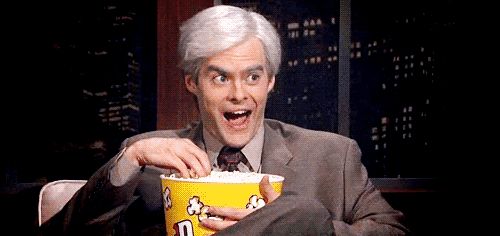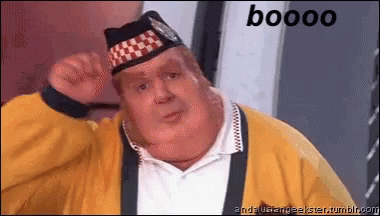Colleges
- American Athletic
- Atlantic Coast
- Big 12
- Big East
- Big Ten
- Colonial
- Conference USA
- Independents (FBS)
- Junior College
- Mountain West
- Northeast
- Pac-12
- Patriot League
- Pioneer League
- Southeastern
- Sun Belt
- Army
- Charlotte
- East Carolina
- Florida Atlantic
- Memphis
- Navy
- North Texas
- Rice
- South Florida
- Temple
- Tulane
- Tulsa
- UAB
- UTSA
- Boston College
- California
- Clemson
- Duke
- Florida State
- Georgia Tech
- Louisville
- Miami (FL)
- North Carolina
- North Carolina State
- Pittsburgh
- Southern Methodist
- Stanford
- Syracuse
- Virginia
- Virginia Tech
- Wake Forest
- Arizona
- Arizona State
- Baylor
- Brigham Young
- Cincinnati
- Colorado
- Houston
- Iowa State
- Kansas
- Kansas State
- Oklahoma State
- TCU
- Texas Tech
- UCF
- Utah
- West Virginia
- Illinois
- Indiana
- Iowa
- Maryland
- Michigan
- Michigan State
- Minnesota
- Nebraska
- Northwestern
- Ohio State
- Oregon
- Penn State
- Purdue
- Rutgers
- UCLA
- USC
- Washington
- Wisconsin
High Schools
- Illinois HS Sports
- Indiana HS Sports
- Iowa HS Sports
- Kansas HS Sports
- Michigan HS Sports
- Minnesota HS Sports
- Missouri HS Sports
- Nebraska HS Sports
- Oklahoma HS Sports
- Texas HS Hoops
- Texas HS Sports
- Wisconsin HS Sports
- Cincinnati HS Sports
- Delaware
- Maryland HS Sports
- New Jersey HS Hoops
- New Jersey HS Sports
- NYC HS Hoops
- Ohio HS Sports
- Pennsylvania HS Sports
- Virginia HS Sports
- West Virginia HS Sports
ADVERTISEMENT
You are using an out of date browser. It may not display this or other websites correctly.
You should upgrade or use an alternative browser.
You should upgrade or use an alternative browser.
Trump selects Herman Cain to Fed
- Thread starter AC_Exotic
- Start date
He had to drop out of 2012 Presidential race due to sexual harassment allegations. So he’d fit right in.
Fit right in?
A WaPo opinion article...He had to drop out of 2012 Presidential race due to sexual harassment allegations. So he’d fit right in. That’s just one problem.
Trump’s next possible Fed nominee can’t understand basic policy issues
Catherine Rampell

Nein, nein, nein.
That should be the Senate’s response if President Trump actually nominates his friend Herman Cain, the former pizza magnate turned failed Republican presidential candidate, to the Federal Reserve Board, as Trump said he plans to do.
Cain would be Trump’s second proposed addition to the Fed in as many weeks, the other being longtime partisan operative Stephen Moore. Even before this month, though, Trump had ample opportunity to reshape the Fed in his anti-institutional, anti-intellectual image. Thankfully — surprisingly, in fact — he had refrained.
For other executive branch appointments, Trump seems to have selected nominees based on who would be the absolute worst person for any given position. But until recently, his Fed choices seemed . . . totally reasonable. He has picked four out of the five already-confirmed Fed board members, all of whom are competent, well-qualified professionals — all reliable Republicans, too, but Republicans who have performed their jobs apolitically. Exactly as members of the central bank, which is politically independent, are supposed to do.
Of course, that benign neglect led to some policy outcomes the president has disliked — specifically, higher interest rates. Perhaps hoping to pack the Fed with more pliant appointees, Trump has now homed in on these two.
Like Moore, Cain has some baggage. Way worse baggage, in fact: Cain dropped out of the 2012 Republican presidential primary after at least four women accused him of sexual misconduct. One alleged that he put his hand up her skirt at a convention and tried to pull her head toward his crotch. When she protested, he allegedly said, “You want a job, right?” Cain denied the allegations.
If true, such actions alone would be disqualifying for any major government position. And they may yet derail his nomination. But they’re also hardly the only reasons to object to placing Cain in one of the most important economic jobs in the world.
To put it bluntly: When it comes to understanding pretty basic policy issues, Cain isn’t able.
Most people who remember anything about Cain’s brief political career might know him for the “9-9-9” tax rate plan. Unfortunately, neither did that plan have rates that were actually 9 percent nor did it turn out to be particularly strong in its arithmetic. I recall a perplexing interview back in 2011, during which I spoke with the adviser who had devised the plan with Cain. It turned out the reason his math didn’t make sense was that he was, among other things, claiming credit for eliminating “invisible” taxes and conflating marginal and average tax rates. Apparently neither he nor his boss had noticed.
Cain made other uninformed or impolitic comments during the 2012 campaign, including saying he didn’t think it was relevant for him to know “who is the president of Ubeki-beki-beki-beki-stan-stan.” Or declaringhe wouldn’t feel comfortable appointing a Muslim to a Cabinet position or a federal judgeship.
But hey, fiscal policy, foreign relations and, uh, the First Amendment aren’t the Fed’s purview! Monetary policy and financial regulation are. Unfortunately — despite the fact that Cain served as a director of the Federal Reserve Bank of Kansas City from 1992 to 1996 — his documented views on these issues are just as quack-tastic.
Cain is a longtime inflation hawk, which could put him at odds with Trump’s calls for looser money. As recently as December 2017, Cain was even defending higher interest rates. But perhaps Trump assumes that Cain will dutifully flip his views, just as the once-hawkish Moore has done.
In fact, in January, when Cain was already rumored to be in contention for a Fed seat, he told Bloomberg he was concerned about recent Fed rate increases and said the real thing to fear was not inflation but nonexistent “deflation.” This is Moore’s boogeyman du jour, too.
But perhaps the bigger issue is that Cain has said — repeatedly — that the United States should return to the gold standard.
This stance is one Moore has also intermittently espoused, and it has been roundly rejected by actual economic experts. That includes, for instance, every single economist surveyed by the University of Chicago’s IGM Economic Experts Panel.
Then there’s the fact that Cain spent the years following his failed presidential campaign spamming his email followers with snake-oil scams, promising “weird tricks” that would make his followers get rich quick or “naturally” cure their erectile dysfunction. Of course, such grifting might enhance Cain’s candidacy in Trump’s eyes, but it hardly bodes well for a man seeking to join an institution with consumer protection duties.
Cain’s one possible virtue is that, during his aborted presidential campaign, he once complained that the Fed had become too “politicized.” I wonder: What might presidential candidate Cain then say about possible-future-Fed-board-governor Cain now?

Sexual deviancy seems to be a requirement in this administration. But let me guess jew don’t see it?Fit right in?
Rhetorical question?Herman Cain “can’t understand pretty basic” policy issues?
That’s more than a little racist sounding, considering Cain’s educational and career background.
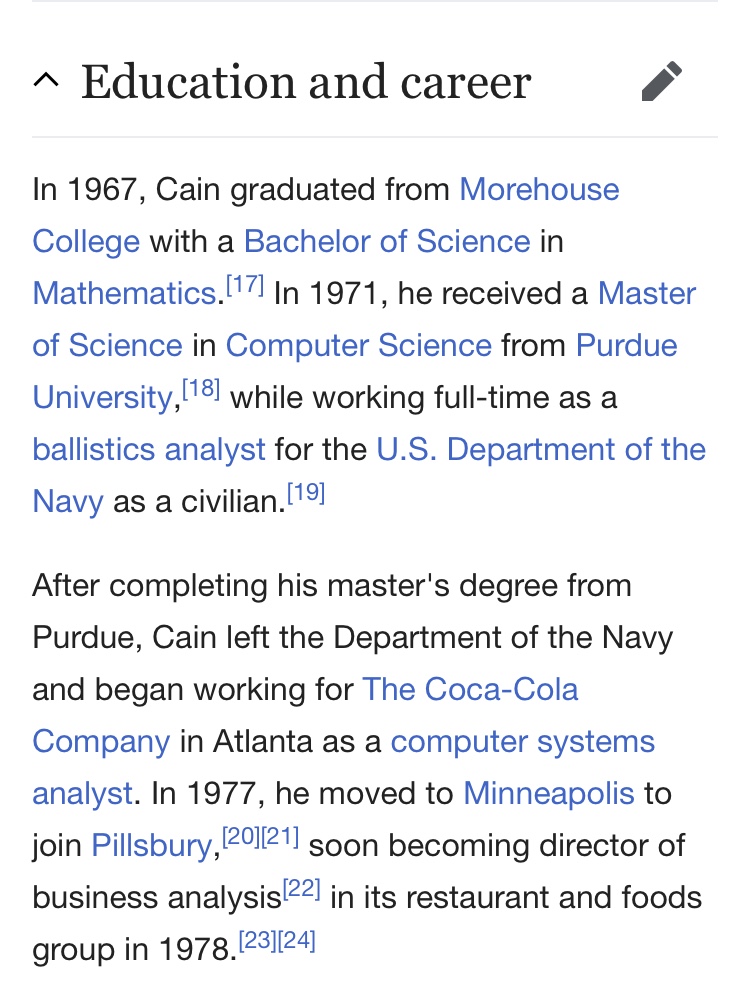
Who is this journalist you posted?
https://en.m.wikipedia.org/wiki/Catherine_Rampell
I’m unsure how working for the fed makes you unqualified to work for the fed. Is this just a talking point gone wrong?
I think Samuel l Jackson will be great as this pick.
@Pokeabear 's first thought reading Cain and Fed in a sentence together:
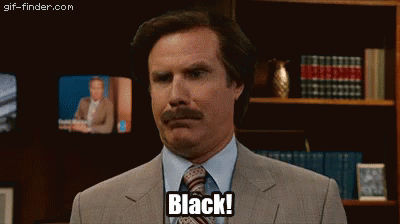
Projection thy name is Bradley. Me think he doth protest too much.
What does Don King look like?
Let me help you rubes.

Let me help you rubes.

Herman Cain “can’t understand pretty basic” policy issues?
That’s more than a little racist sounding, considering Cain’s educational and career background.

Who is this journalist you posted?
https://en.m.wikipedia.org/wiki/Catherine_Rampell
She is a Princeton alum with powerful Jewish Princeton alum parents telling an accomplished black man he doesn’t know economics. It doesnt say her degree in the wiki though.
Awesome
She is a Princeton alum with powerful Jewish Princeton alum parents telling an accomplished black man he doesn’t know economics. It doesnt say her degree in the wiki though.
Awesome

Rhetorical question?
Actual question.
This journalist you posted, called a mathmetician / computer scientist who developed into successfully running a major business, dumb — “Cain can’t understand basic policy.”
She didn’t write that Cain can’t successfully perform in his role — she wrote that he “can’t understand” basic policy surrounding it.
Marinate on that....
Actual question.
This journalist you posted, called a mathmetician / computer scientist who developed into successfully running a major business, dumb — “Cain can’t understand basic policy.”
She didn’t write that Cain can’t successfully perform in his role — she wrote that he “can’t understand” basic policy surrounding it.
Marinate on that....
He doesn’t marinate anything. He goes straight to the grill with the dumbest opinion he can come up with. Or whatever his media tells him to say. Luckily those two things intertwine often.
Here’s some juice boo.Actual question.
This journalist you posted, called a mathmetician / computer scientist who developed into successfully running a major business, dumb — “Cain can’t understand basic policy.”
She didn’t write that Cain can’t successfully perform in his role — she wrote that he “can’t understand” basic policy surrounding it.
Marinate on that....
Wicked smaht.He doesn’t marinate anything. He goes straight to the grill with the dumbest opinion he can come up with. Or whatever his media tells him to say. Luckily those two things intertwine often.
Now you're relying on Mitt Romney's opinion? L-O-L-O-L
Mitt Romney is a dead deer left on the tracks after the trump train came through town. His opinion has been and should continue to be ignored by real Americans.
Now you're relying on Mitt Romney's opinion? L-O-L-O-L
He is waiting on the opinion of the bush family for his next post.
I did in 2012 when he said Russia was our greatest foe. I’m not like you buddy, I can take those I disagree with on many things seriously and even agree with them from time to time.Now you're relying on Mitt Romney's opinion? L-O-L-O-L
I thought it was the King family? Do we only listen to white vaginas now?He is waiting on the opinion of the bush family for his next post.
I thought it was the King family? Do we only listen to white vaginas now?
Good point?
You figured out that Russia was our greatest foe when Mitt told you in 2012? Good lordy, son. Mitt was only stating what everyone but Obama nut chuggers already knew.I did in 2012 when he said Russia was our greatest foe. I’m not like you buddy, I can take those I disagree with on many things seriously and even agree with them from time to time.
You. Are. Dense. I. Agreed. With. The. Man. At. The. Time. Doesn’t. Mean. It. Was. A. Revelation.You figured out that Russia was our greatest foe when Mitt told you in 2012? Good lordy, son. Mitt was only stating what everyone but Obama nut chuggers already knew.
You. Are. Dense. I. Agreed. With. The. Man. At. The. Time. Doesn’t. Mean. It. Was. A. Revelation.
No. one. believes. you.
Oh, my bad.You. Are. Dense. I. Agreed. With. The. Man. At. The. Time. Doesn’t. Mean. It. Was. A. Revelation.
Speaking of powerful Princeton alumsShe is a Princeton alum with powerful Jewish Princeton alum parents telling an accomplished black man he doesn’t know economics. It doesnt say her degree in the wiki though.
Awesome
If the Fed’s own Inspector General is this incapable of answering basic questions (listen to her responses below).....
How could Hermain Cain (mathematician / computer scientist who developed into a business leader) not be qualified?
Or not smart enough, as the journalist wrote that @Pokeabear posted.
How could Hermain Cain (mathematician / computer scientist who developed into a business leader) not be qualified?
Or not smart enough, as the journalist wrote that @Pokeabear posted.
If the Fed’s own Inspector General is this incapable of answering basic questions (listen to her responses below).....
How could Hermain Cain (mathematician / computer scientist who developed into a business leader) not be qualified?
Or not smart enough, as the journalist wrote that @Pokeabear posted.
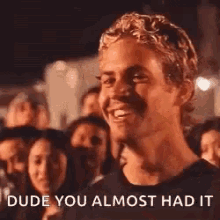
It’s crazy trump introduced sexual promiscuity to that town. He ruined the whole place in 2 years.
@Pokeabear ’s vision of politicians before that mean old trump started corrupting Washington DC. I think that’s ted Kennedy on the left.
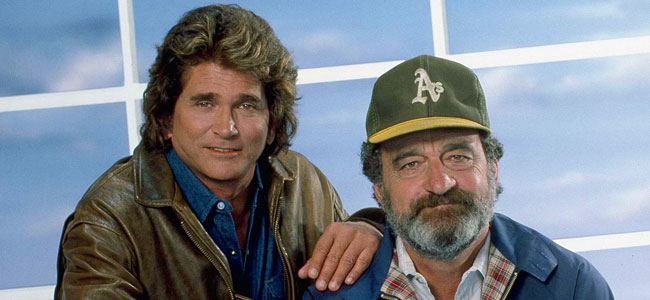

You show us your resume I’ll show you mine. Here’s a hint though, mines just a picture of my dick.
This may be upsetting to Aliabedi. It's got the feminists all upset in Pakistan right now. (link)
https://www.breitbart.com/news/periods-and-dick-pic-posters-ignite-feminist-firestorm-in-pakistan-2/
Trump’s recommendation of Herman Cain is utterly reckless
https://www.washingtonpost.com/opin...?utm_source=reddit.com&utm_term=.5d63ddaa674a
Editorial Board
April 6 at 5:19 PM
IT CAN take years, or decades, to establish a good reputation — but only minutes to destroy one. To consider the importance, and fragility, of reputation generally, and then to consider how vital is the Federal Reserve’s reputation for political independence and technical expertise, both to the United States and the world, is to grasp the utter recklessness of President Trump’s recommendation of Herman Cain for a position on the Fed’s Board of Governors.
Mr. Trump seems restless with current Fed monetary policy, which is too tight for his liking, though Chairman Jerome H. Powell is a respected figure the president himself appointed — and the economy remains in good shape, as demonstrated by Friday’s jobs report, which put the unemployment rate at only 3.8 percent. For a president to couple such criticism with an attempt to appoint two new governors known mainly for their ideological and personal loyalty to him raises the hideous specter of a Trump-packed Fed that would be constantly wary of rubbing the politician in chief the wrong way.
This is doubly true when the latest announced appointee, after tax-cut enthusiast Stephen Moore, is Mr. Cain, the former 2012 GOP presidential primary candidate, whose bid flamed out amid charges of sexual harassment. Mr. Cain’s conservative Republican activism followed a relatively conventional career in corporate America, including stints as chief executive of Godfather’s Pizza and of the restaurant trade association. For four years in the mid-1990s, he served in a largely honorific and advisory position as a director of the Federal Reserve Bank in Kansas City. Mr. Cain more recently has headed something called Americans Fighting Back PAC, whose purpose, according to its website, is “to carry out a National Messaging & Public Relations Campaign to facilitate and grow a national grassroots movement of educated and informed voters to engage and fight for the President’s policies and freedom agenda to win in 2020.”
Keep Reading
So Mr. Cain’s political fealty to Mr. Trump is ironclad — stronger, certainly, than his expertise in economics or financial markets, usual qualifications for the Fed Board of Governors. For example, Mr. Cain in 2012 called for a return to a gold-linked dollar, writing: “Gold is kryptonite to big-spending politicians. It is to the moochers and looters in government what sunlight and garlic are to vampires.” Even unembellished by demagogic rhetoric, Mr. Cain’s idea contradicts the consensus among economic professionals that the gold standard — under which the Fed would agree to exchange some of its gold for paper dollars at a fixed rate — is destructive and outmoded. It would limit the Fed’s ability to expand the money supply to fight recessions, with potentially catastrophic results. Many blame the gold standard of the 1930s for deepening the Great Depression.
The Fed’s integrity has been threatened before, by presidents and by members of Congress seeking to bend its awesome powers to their short-term partisan advantage. So far, it has generally withstood those attempts, arguably emerging even stronger. Mr. Trump seems determined to mount another attack, which might succeed unless the Republicans who control the Senate put the nation’s interest above his and refuse to go along.
https://www.washingtonpost.com/opin...?utm_source=reddit.com&utm_term=.5d63ddaa674a
Editorial Board
April 6 at 5:19 PM
IT CAN take years, or decades, to establish a good reputation — but only minutes to destroy one. To consider the importance, and fragility, of reputation generally, and then to consider how vital is the Federal Reserve’s reputation for political independence and technical expertise, both to the United States and the world, is to grasp the utter recklessness of President Trump’s recommendation of Herman Cain for a position on the Fed’s Board of Governors.
Mr. Trump seems restless with current Fed monetary policy, which is too tight for his liking, though Chairman Jerome H. Powell is a respected figure the president himself appointed — and the economy remains in good shape, as demonstrated by Friday’s jobs report, which put the unemployment rate at only 3.8 percent. For a president to couple such criticism with an attempt to appoint two new governors known mainly for their ideological and personal loyalty to him raises the hideous specter of a Trump-packed Fed that would be constantly wary of rubbing the politician in chief the wrong way.
This is doubly true when the latest announced appointee, after tax-cut enthusiast Stephen Moore, is Mr. Cain, the former 2012 GOP presidential primary candidate, whose bid flamed out amid charges of sexual harassment. Mr. Cain’s conservative Republican activism followed a relatively conventional career in corporate America, including stints as chief executive of Godfather’s Pizza and of the restaurant trade association. For four years in the mid-1990s, he served in a largely honorific and advisory position as a director of the Federal Reserve Bank in Kansas City. Mr. Cain more recently has headed something called Americans Fighting Back PAC, whose purpose, according to its website, is “to carry out a National Messaging & Public Relations Campaign to facilitate and grow a national grassroots movement of educated and informed voters to engage and fight for the President’s policies and freedom agenda to win in 2020.”
Keep Reading
So Mr. Cain’s political fealty to Mr. Trump is ironclad — stronger, certainly, than his expertise in economics or financial markets, usual qualifications for the Fed Board of Governors. For example, Mr. Cain in 2012 called for a return to a gold-linked dollar, writing: “Gold is kryptonite to big-spending politicians. It is to the moochers and looters in government what sunlight and garlic are to vampires.” Even unembellished by demagogic rhetoric, Mr. Cain’s idea contradicts the consensus among economic professionals that the gold standard — under which the Fed would agree to exchange some of its gold for paper dollars at a fixed rate — is destructive and outmoded. It would limit the Fed’s ability to expand the money supply to fight recessions, with potentially catastrophic results. Many blame the gold standard of the 1930s for deepening the Great Depression.
The Fed’s integrity has been threatened before, by presidents and by members of Congress seeking to bend its awesome powers to their short-term partisan advantage. So far, it has generally withstood those attempts, arguably emerging even stronger. Mr. Trump seems determined to mount another attack, which might succeed unless the Republicans who control the Senate put the nation’s interest above his and refuse to go along.
Washington Post. LOL!
Chase that ****** back to the plantation where he belongs. He's not a good boy.
Chase that ****** back to the plantation where he belongs. He's not a good boy.
Washington Post. LOL!
"Editorial Board" no less. Everything they publish is an editorial.
I imagine their reasons aren't remotely similar to the vile, knee-jerk impulse you exhibited in this very thread.
You. Are. Bananas.I imagine their reasons aren't remotely similar to the vile, knee-jerk impulse you exhibited in this very thread.
Similar threads
- Replies
- 0
- Views
- 193
- Replies
- 0
- Views
- 265
ADVERTISEMENT
ADVERTISEMENT
